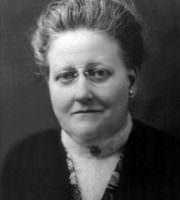by Gail Mazur
As if to mock me in my widowhood
as if to deny my pandemic isolation
this huge carton arrives at my door,
an absurd cosmic mistake from Yehuda
Matzos: ten boxes, which should last
long enough to get incinerated
with me at the old New England
cemetery that was once the family
farm of poet Robert Creeley’s greatgrandfather,
and where his descendants
can be buried together ad aeternam.
Mirabile dictu, that Bob and the ashes
of my beloved—and mine—will lie in
that pastoral landscape where I like to
walk on spring mornings. One of the first
arboreal cemeteries, a sanctuary, really,
for mourners, bird watchers, and my friends
the Sunday botanizers. Should I be buried—
or should my ashes just be sprinkled about
with old dry crumbs of Yehuda’s uncalledfor
unrisen bread? Such questions never
occurred in what today we call “normal times”
when I’d bring cut flowers to lay on our stone
etched with a palette, a brush, a pen, nestled
alongside the markers of other Jews,
and Chinese and Armenians, near Malamud
and Achilles Fang and Izzy Stone, far
from Longfellow and Mary Baker Eddy,
overlooking a pond which is serene home
all summer to a picturesque pair of
weeping willows and two white swans.
Who was the misinformed deliverer of
such excess to my door, of these symbols
of my people’s eternal hardships? O
Yehuda Matzos, Yehuda Matzos, yes,
in your crisp hard plenitude you mock
and (kind of) amuse me, when I’d forgotten
how you’ve always been baked
with the salty tears of my people’s exodus—
but oh, I will eat, and eat alone, until the day
I can eat no more of our unleavened bread.





